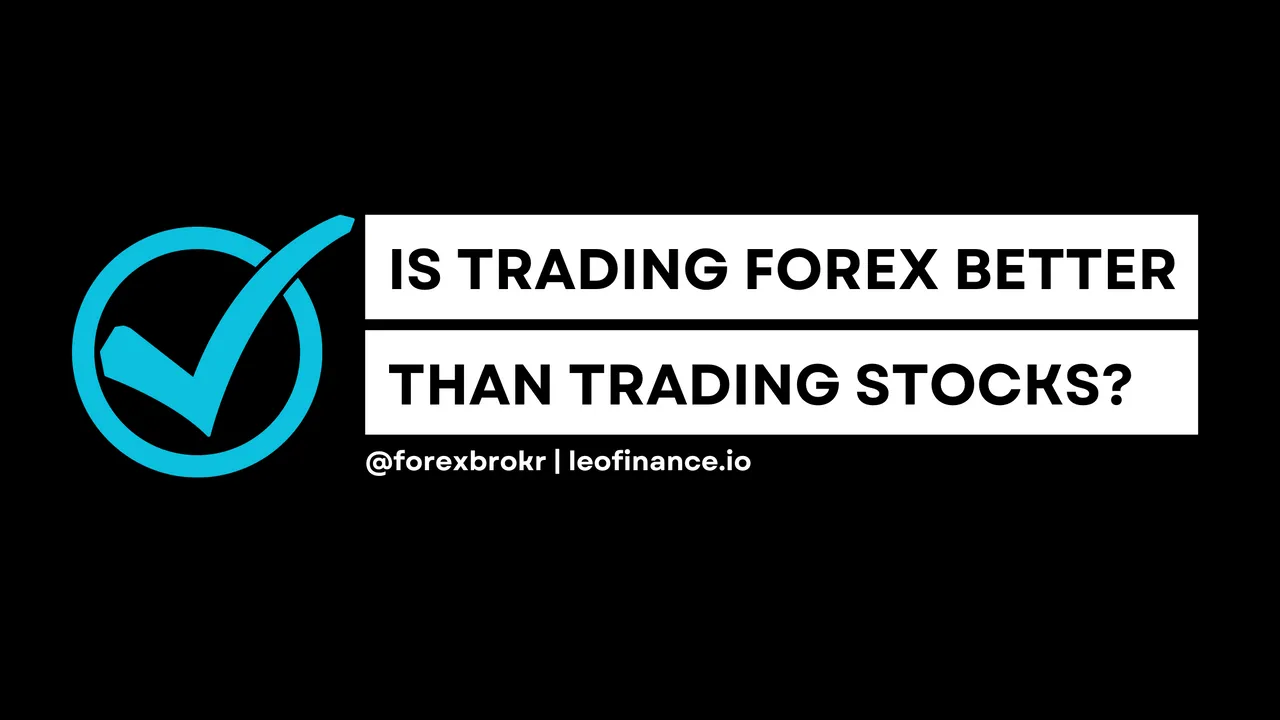
Direct from the desk of Dane Williams.
This is an entirely opinion-based call, but mine is obviously that the answer is yes.
Trading forex is better than trading stocks.
You see for me, forex trading offers some distinct advantages that make it an appealing choice for those of us in the retail game.
One of the first things that tips my scales in favour of forex, is accessibility.
It's far easier for retail traders to get involved in forex trading compared to stock trading.
You don't need a hefty sum of money to start.
Even a relatively small, $1000 account can get you into the game.
This accessibility can be a game-changer, especially for those of us starting with limited capital.
Additionally, when you add everything up, forex trading tends to be more cost-effective.
The transaction costs offered by forex brokers are typically lower than those associated with stock trading.
Lower transaction costs mean that you retain a more significant portion of your profits, giving you an edge when it comes to building your trading account over time.
Leverage is another compelling aspect of forex trading.
While it's a double-edged sword, leverage actually allows you to manage your risk extremely effectively.
By controlling a more substantial position with a smaller original deposit into your account, you can potentially amplify your profits.
However, remember that leverage can also magnify your losses.
So with that in mind, it's crucial to approach it with caution and a well-thought-out risk management strategy.
Not to mention the forex market operates 24 hours a day, five days a week.
This around-the-clock availability makes trading when and how you want, much more doable.
It doesn’t matter where on the planet you are, the forex market is always open and active.
This flexibility can be a significant advantage, especially if you have a full-time job or other commitments in your life.
In saying that however, to draw a balanced picture let's not overlook the benefits of stock trading.
When you buy stocks, you become a shareholder in a company, entitling you to a share of its assets and earnings.
Stocks can provide dividends and the potential for capital appreciation.
If you're inclined towards long-term investing and prefer the concept of owning a piece of a business, stocks may align better with your objectives.
You’ll also find some of the same benefits as forex being present when you’re trading CFD or stock market indices.
Coming to a final verdict, my opinion definitely leans towards forex trading as the better option.
There’s no doubt that both markets have their own merits and drawbacks.
But the ease and accessibility for literally anyone on the planet to start forex trading makes it a clear winner.
However, it's essential to reiterate that the choice between forex and stocks ultimately depends on you.
If you’ve come this far looking for an answer to the question, then why not open a trading account with a broker or platform that offers both?
There are many brokers who list stock CFDs as part of their overall forex trading offering.
No, you don’t get any of the ownership benefits that come with trading the underlying asset.
Nevertheless, trading on margin makes a market a market and you’ll be able to test your same trading strategies across multiple asset classes.
Best of probabilities to you.